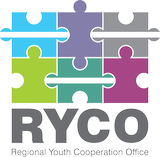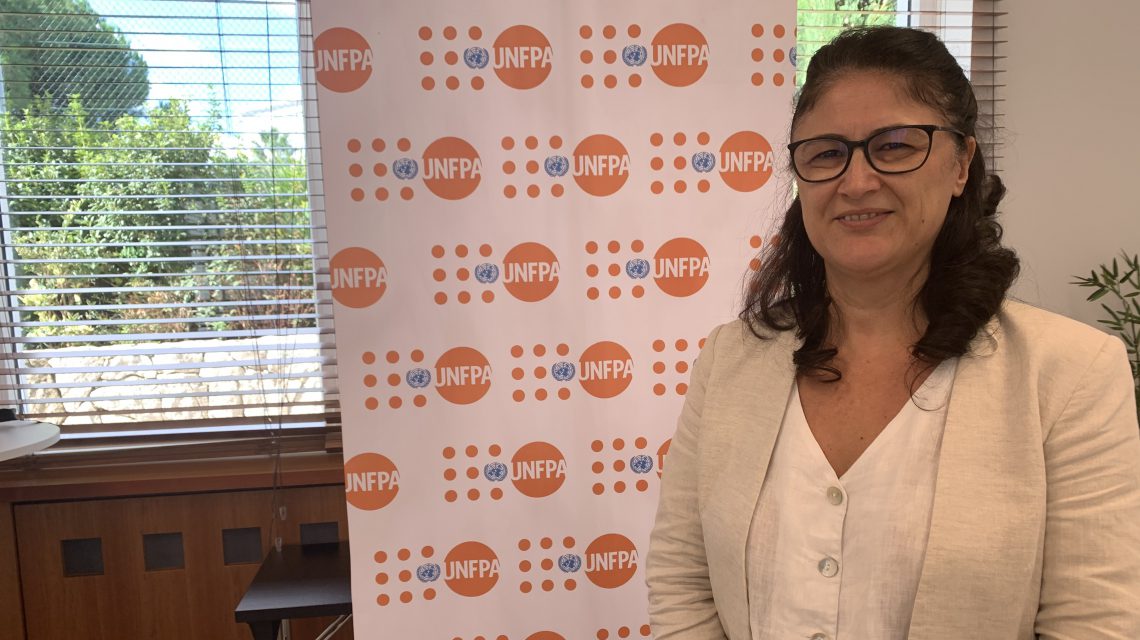Elida Nuri, the Advocacy & Communications Analyst UNFPA Albania highlights the advantages the youth cooperation brings in the Western Balkans.
We are conducting this interview because the UN is working closely with RYCO on a joint project. Why do you support RYCO and its mission?
We have found a strong partner in RYCO, because it is an intergovernmental organisation that promotes and strengthens reconciliation, trust, cooperation, peace and dialogue in the Western Balkans through youth exchange programs with a focus on educational, cultural, civic and social activities, a youth led entity which makes every effort to promote youth intercultural exchange programs and youth cooperation in the Western Balkans that we believe will benefit peacebuilding and reconciliation in this sub-region, so much needed and so much promoted by UN worldwide from a human rights based perspective.
How does RYCO’s work contribute to reaching SDG’s?
The Sustainable Development Goals (SDGs) are long term objectives agreed by all governments and societies, including those of the Western Balkans. All the 17 SDGs will be achieved only if all people, institutions and civil society organisations work together. We believe that RYCO, through its mission and interventions for and with young people, has a strong role to play in achieving SDG16 to promote peaceful and inclusive societies for sustainable development in Western Balkans, to provide access to justice for all young people, especially those hard to reach or from vulnerable groups, and provide a model of effective, accountable and inclusive institution with the assistance of UN and other international organisations.
Why is intercultural dialogue and cross-border cooperation worth supporting for the UN and why are these issues important for the Western Balkans?
The UN is concerned that the long-standing lack of progress on trust-building, constructive dialogue and reconciliation in the Western Balkans poses a key risk to stability in the region and beyond. Thus, also based on the momentum created by the EU’s 2018 engagement strategy for the Western Balkans which prioritizes reconciliation as critical to ensuring lasting peace in the region, the UN is committed to enhancing its engagement and action to help address the structural and related challenges. Joint efforts with RYCO for intercultural dialogue and cross-border cooperation are in line the UN prevention and sustaining peace priorities, as well as the 2030 Agenda and SDGs, and complement the work of national and international stakeholders (EU, OSCE, and others) with its programmatic and other capacities across the peace and security, human rights and development pillars.
What do you want to achieve in the end with the YOUth Inspired by Peace campaign and the project within which this campaign is implemented?
We really hope that young people in the Western Balkans and beyond are inspired by what their peers have done and achieved through our joint project, showing that we are all so similar and have much more beautiful culture, art, lifelong links, more things in common than rather be stuck in the past and be divided by old narratives or hate speech. We believe young people can and will make the change.
One of the campaign events envisages lighting/illuminating schools in intercultural municipalities across the region. What is the message you aim to convey through this activity?
Well, a school is the symbol of education and opportunity. Education brings change, education links people, education opens whole horizons of good understanding and solidarity and mutual respect for all, free of any discrimination because of ethnicity, language, gender or sex, social or economic background. And education provided adequately and qualitatively at very early ages forms civic youngsters and builds individuals who will create a more tolerant and understanding environment for themselves and the others in their community. So schools and teachers play a significant role, no matter where they are located in the region, they all should be safe and peaceful places able to provide young people with life skills and provide access, be inclusive and accepting for all free of any discrimination, so schools should be the positive light to shine.
RYCO also does intercultural exchanges for youth in the region, what are the benefits of these exchanges and the opportunities for prospective beneficiaries in your opinion?
As I mentioned above, we believe that such exchanges help young people understand better and see for themselves that their peers live in similar environments, face the same issues and challenges and hopefully coming together and joining forces will provide them more ideas to find long-term solutions for their generation. They can network, they can learn from each other, they can inspire each other and come up with innovative ideas for a better region.
Is the UN planning to continue cooperation with RYCO?
For the UN, young people, their education and well upbringing in a safe peaceful tolerant inclusive accepting environment is a continuous objective, as much as young people are a target group of UN interventions and partners in implementing such interventions. So RYCO, as a youth organisation with a clear cooperation and peacebuilding mandate and mission, will continue to be a key partner in Western Balkans to build resilient peaceful societies in the region.
Finally, what is the message you would like to send to young people of the region?
Speak to each other, listen to each other, cooperate and accept each other without any prejudices, be the change the region needs.
_________
This interview is undertaken in the framework of the “Supporting the Western Balkan’s Collective Leadership on Reconciliation” a joint UN-RYCO project, funded by the UN Peace building Fund. It is implemented by the Regional Youth Cooperation Office (RYCO) and the three UN Agencies – UNDP, UNFPA, and UNICEF. The project aims to build capacities and momentum for RYCO, empower young people in having their voice in public decision-making that affects their lives, as well as strengthen them to be a factor in building and maintaining safe and peaceful environments for themselves and their communities.



